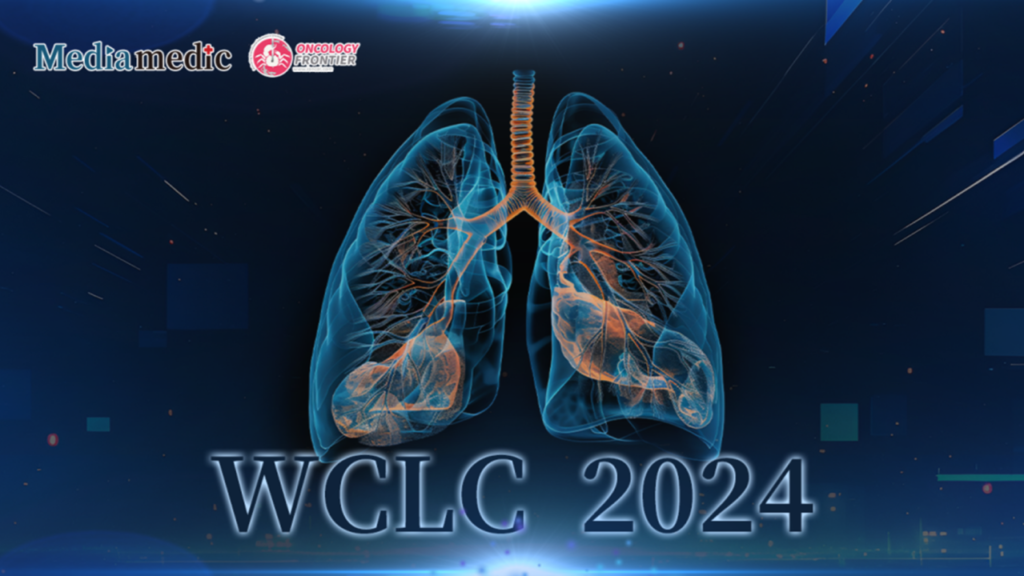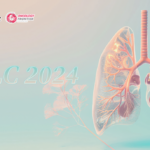
During the second Presidential Symposium at the 2024 World Conference on Lung Cancer (WCLC), Professor Jing-Ji Yang from Guangdong Provincial People’s Hospital presented the report “Osimertinib with or without Savolitinib as First-Line Treatment for De Novo MET Aberrant, EGFRm Advanced Non-Small Cell Lung Cancer (NSCLC) (CTONG 2008): Results from the Phase II FLOWERS Clinical Trial.”Previous research has shown that the coexistence of EGFR mutation and MET amplification/overexpression reduces sensitivity to EGFR-TKIs and may be a key mechanism driving primary resistance to first-line EGFR-TKI monotherapy in patients. This open-label phase II trial enrolled 44 patients, with approximately half receiving osimertinib (80mg qd) monotherapy, and the other half (21 patients) receiving osimertinib (80mg qd) plus savolitinib (300mg bid). All patients had locally advanced or metastatic NSCLC, had not received prior treatment for advanced disease, and harbored both EGFR-sensitive mutations and MET abnormalities (MET amplification or MET overexpression). Treatment continued until disease progression, unacceptable toxicity, or other reasons for discontinuation. Patients on monotherapy who experienced disease progression and had confirmed MET alterations could switch to combination therapy. The primary endpoint was the objective response rate (ORR) confirmed by investigators. Secondary endpoints included disease control rate (DCR), duration of response (DOR), progression-free survival (PFS), overall survival (OS), 12-month OS rate, safety, and tolerability.
The median age of the patients was 58 years. About half (48%) were female, and 66% had never smoked. Most patients (96%) had stage IV NSCLC, and 34% had brain metastases at baseline. The most common EGFR mutations were 19DEL (48%) and L858R (43%). Most tumors (82%) exhibited MET overexpression, 14% had MET amplification, and 5% had both MET overexpression and amplification.
Study Results
For patients with MET-altered and EGFR-mutant advanced NSCLC, the combination of the third-generation EGFR-TKI osimertinib with the MET inhibitor savolitinib as a first-line treatment appeared superior to osimertinib monotherapy. The phase II FLOWERS trial showed an ORR of 90.5% and a DCR of 95.2% for the combination therapy, compared to 60.9% and 87.0%, respectively, for osimertinib alone.
Although the median follow-up time was short at only 8 months, and the data is still maturing, preliminary results suggest that the combination therapy may offer better survival outcomes. The 12-month PFS rate was 65.5% for the combination therapy versus 49% for monotherapy. The preliminary median PFS for the combination group was 19.6 months, compared to 9.3 months for the monotherapy group, with a hazard ratio (HR) of 0.59 (95% CI: 0.19-1.81).
Adverse events (AEs) were tolerable and manageable. However, 100% of patients in both groups reported at least one treatment-related adverse event (TRAE). In the combination therapy group, 71.4% of patients experienced grade ≥3 TRAEs, compared to 26.1% in the monotherapy group.
The most common TRAEs in the monotherapy group were diarrhea, rash, and pruritus. In the combination group, the most frequent TRAEs were thrombocytopenia, peripheral edema, and elevated ALT levels. No TRAEs in the monotherapy group led to dose reduction or permanent discontinuation, while 23.8% of patients in the combination group required dose reductions or permanent discontinuation. There were no TRAE-related deaths.
The report concluded that the combination therapy regimen from the phase II FLOWERS trial holds promise as a new first-line treatment option for patients with de novo MET aberrations and EGFR-mutant advanced NSCLC.
Reference: J. Yang, et al. Osimertinib With or Without Savolitinib as 1L in De Novo MET Aberrant, EGFRm Advanced NSCLC (CTONG 2008): A Phase II Trial. 2024 WCLC, PL04.10.


